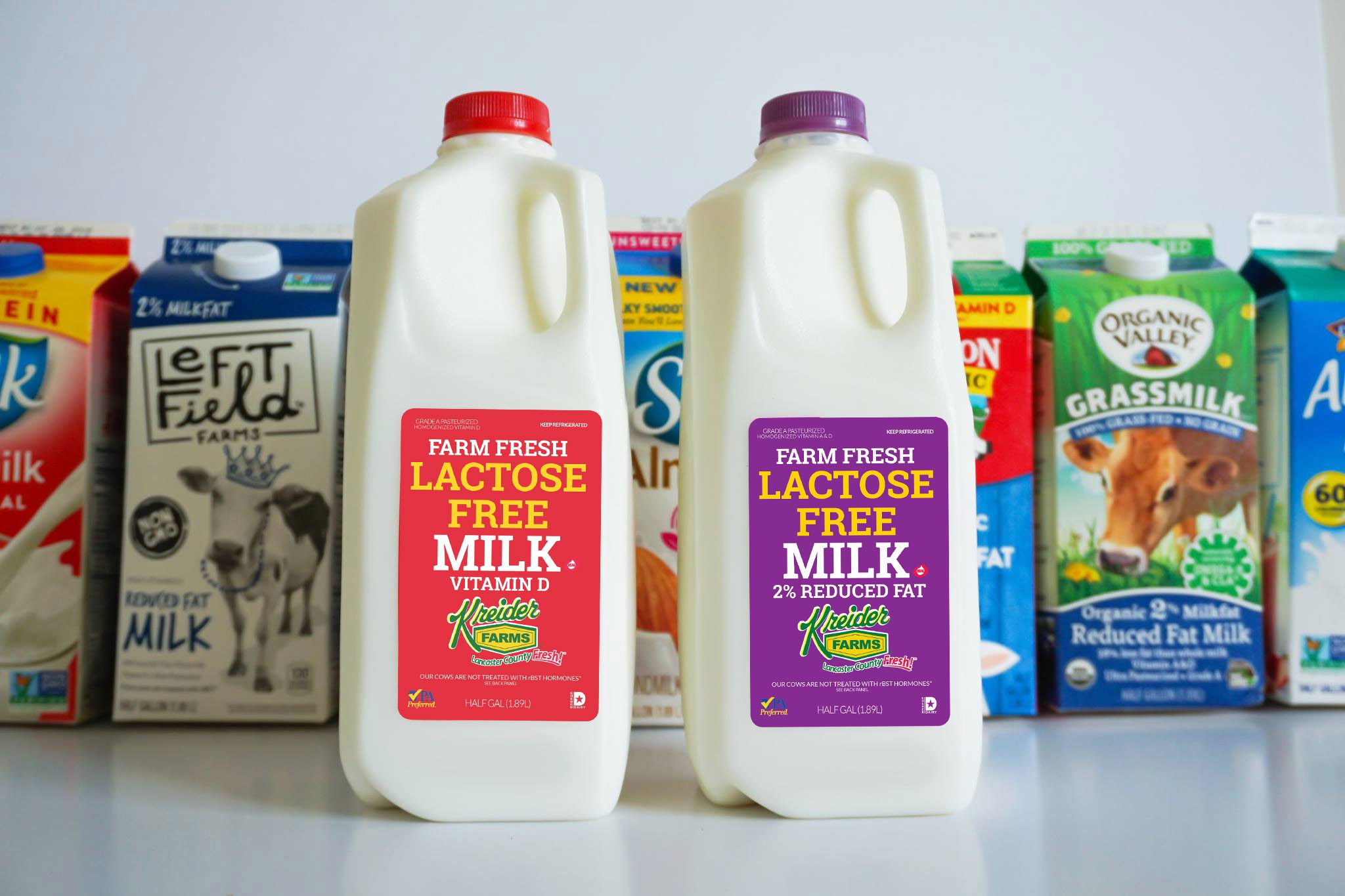
Lactose intolerance affects a significant portion of the global population, making it challenging for individuals to consume dairy products. However, thanks to advancements in food science, lactose-free milk has become an increasingly popular alternative for those who are lactose intolerant. Not only is lactose-free milk a viable substitute for regular milk, but it also boasts numerous nutritional benefits.
In this article, we will explore 11 important lactose-free milk nutrition facts that underline its significance as a healthy alternative. From essential nutrients to potential health benefits, understanding the nutritional profile of lactose-free milk will help you make informed dietary choices and ensure your body’s needs are met effectively.
Key Takeaways:
- Lactose-free milk is a nutrient-packed option for those with lactose intolerance, offering essential nutrients like calcium and protein for strong bones and muscles.
- With low fat content and versatile use in recipes, lactose-free milk provides a delicious and healthy alternative for individuals with lactose intolerance.
Lactose-Free Milk is Rich in Essential Nutrients
Lactose-free milk is packed with essential nutrients such as calcium, protein, and vitamins D and BThese nutrients are vital for strong bones, healthy muscles, and overall growth and development.
It is a Great Source of Calcium
Calcium is crucial for maintaining healthy bones and teeth. Lactose-free milk provides a significant amount of calcium, making it an excellent choice for individuals who are lactose intolerant but still want to meet their daily calcium requirements.
Lactose-Free Milk is Low in Fat
If you’re watching your fat intake, lactose-free milk is a great option. It contains low levels of fat, making it a healthier alternative to regular whole milk while still providing the same creamy taste.
It Helps Maintain Healthy Digestion
Lactose-free milk is easier to digest for individuals with lactose intolerance. By eliminating lactose, the digestive system can function more efficiently, reducing discomfort and digestive issues.
Rich in Protein for Muscle Repair
Lactose-free milk is a great source of high-quality protein, which is essential for muscle repair and growth. Consuming protein-rich lactose-free milk after a workout can help speed up recovery and promote muscle building.
Suitable for Individuals with Lactose Intolerance
Lactose-free milk is specifically designed for individuals who are lactose intolerant, providing them with a delicious and nutritious alternative to dairy products that contain lactose.
Fortified with Vitamins and Minerals
Lactose-free milk is often fortified with additional vitamins and minerals such as vitamin D and BThese nutrients play a crucial role in supporting immune function, neurological health, and energy production.
Supports Bone Health
The calcium and vitamin D content in lactose-free milk contribute to maintaining strong and healthy bones. Regular consumption can help prevent conditions such as osteoporosis and promote optimal bone density.
Helps Control Blood Pressure
Lactose-free milk contains a good amount of potassium, a mineral known for its role in regulating blood pressure. Including lactose-free milk in your diet may contribute to maintaining healthy blood pressure levels.
Can Be Used in Recipes
Lactose-free milk can be used in various recipes as a substitute for regular milk. It maintains its creamy texture and taste, making it a versatile ingredient for baking, cooking, or making delicious smoothies.
Widely Available in Different Varieties
Lactose-free milk is readily available in different varieties such as whole, skim, or flavored options. This variety allows individuals to choose the lactose-free milk that best suits their taste and nutritional preferences.
Overall, lactose-free milk provides a solution for individuals with lactose intolerance to still enjoy the taste and benefits of milk without experiencing digestive discomfort. Incorporating these 11 lactose-free milk nutrition facts into your diet can help you reap the nutritional benefits while catering to your dietary needs.
Conclusion
In conclusion, lactose-free milk is a fantastic alternative for individuals who are lactose intolerant or have a sensitivity to lactose. It provides all the essential nutrients found in regular milk, including calcium, protein, and vitamins. Lactose-free milk offers the same great taste and creamy texture, making it suitable for use in cooking, baking, and as a beverage. It is a convenient option for those who want to enjoy dairy products without experiencing digestive discomfort. With a variety of lactose-free milk options available on the market, individuals can easily find a product that suits their taste preferences and dietary needs. Making the switch to lactose-free milk can open up a world of culinary possibilities and ensure that individuals with lactose intolerance can still enjoy the benefits of dairy. So go ahead, try lactose-free milk and discover a delicious and nutritious alternative!
FAQs
Q: What is lactose-free milk?
A: Lactose-free milk is a type of milk that has undergone a process where the lactose, a natural sugar found in milk, has been broken down. This makes it easier for individuals with lactose intolerance to digest the milk without experiencing any discomfort.
Q: Is lactose-free milk nutritional?
A: Yes, lactose-free milk is highly nutritional. It contains the same essential nutrients as regular milk, including calcium, protein, vitamins, and minerals. Lactose-free milk is an excellent source of calcium, which is vital for strong bones and teeth.
Q: How does lactose-free milk taste?
A: Lactose-free milk tastes very similar to regular milk. It has a creamy and slightly sweet flavor. The taste may vary slightly depending on the brand and manufacturing process.
Q: Can I use lactose-free milk in recipes that call for regular milk?
A: Absolutely! Lactose-free milk can be used as a substitute for regular milk in any recipe. It works well in cooking, baking, and even in beverages such as coffee or tea.
Q: Who can benefit from drinking lactose-free milk?
A: Lactose-free milk is a great option for individuals who are lactose intolerant or have lactose sensitivity. It allows them to enjoy the taste and benefits of milk without experiencing digestive issues such as bloating, gas, or stomach discomfort.
Lactose-free milk offers numerous health benefits without compromising taste or nutrition. Understanding its advantages empowers consumers to make informed choices about their dairy intake. For those seeking more in-depth information, our comprehensive guide to Fairlife lactose-free milk nutrition facts provides additional insights into this popular alternative. Whether you're lactose intolerant or simply curious about different milk options, exploring the world of lactose-free milk can open up new possibilities for your diet and overall well-being.
Was this page helpful?
Our commitment to delivering trustworthy and engaging content is at the heart of what we do. Each fact on our site is contributed by real users like you, bringing a wealth of diverse insights and information. To ensure the highest standards of accuracy and reliability, our dedicated editors meticulously review each submission. This process guarantees that the facts we share are not only fascinating but also credible. Trust in our commitment to quality and authenticity as you explore and learn with us.


